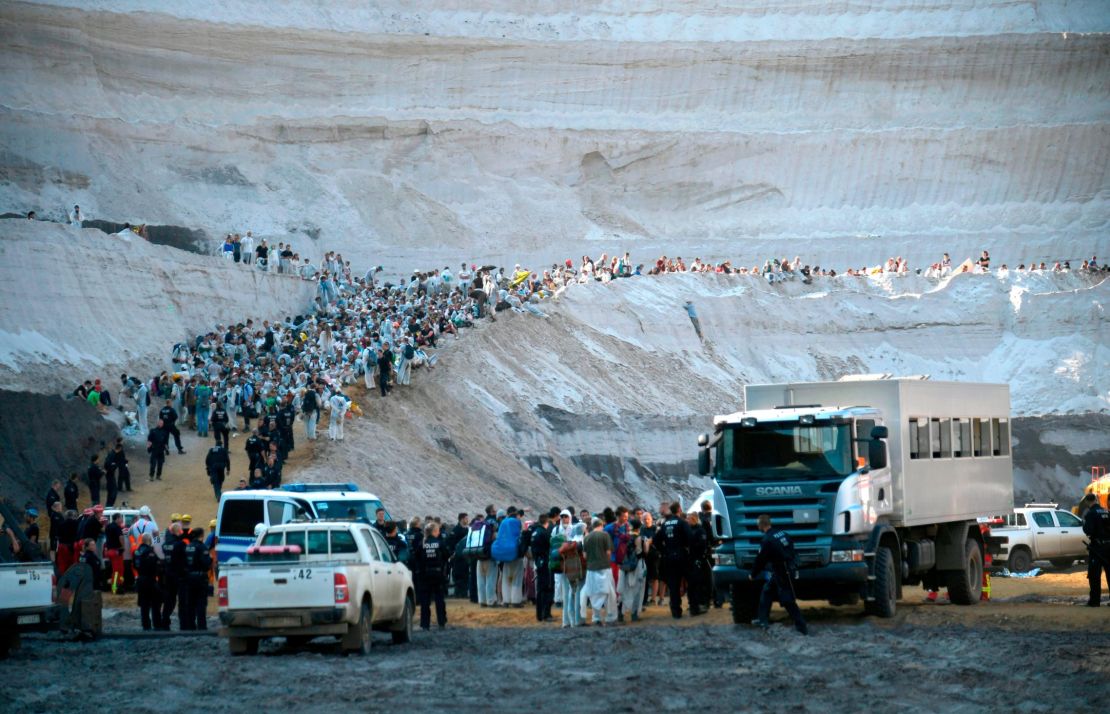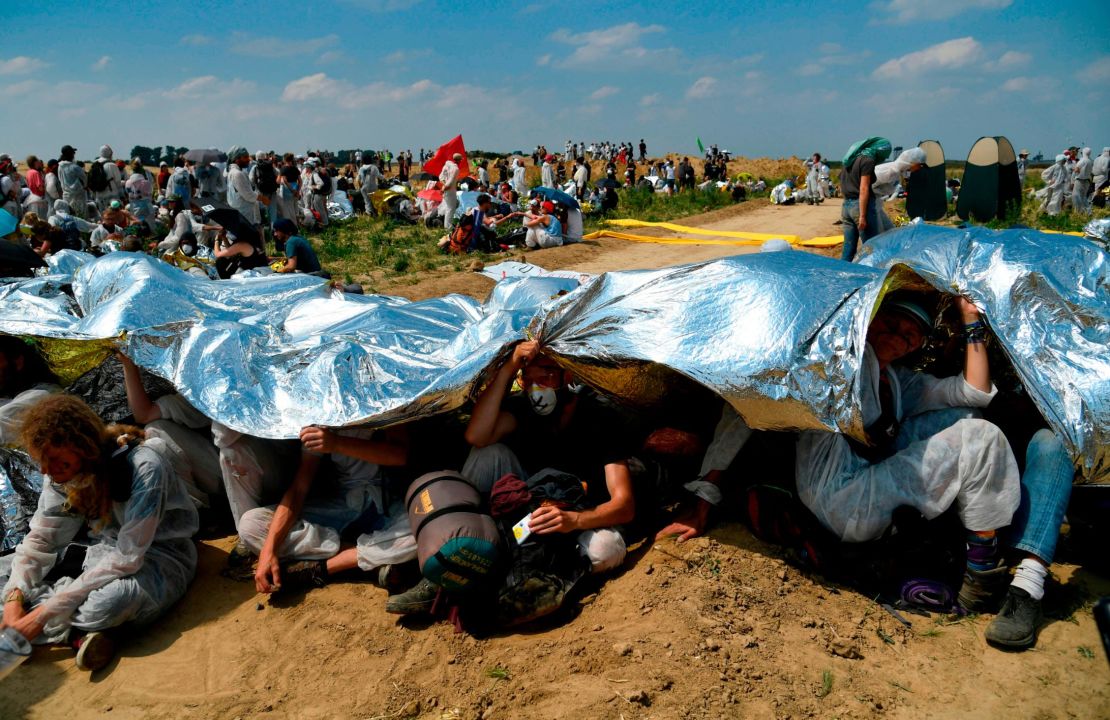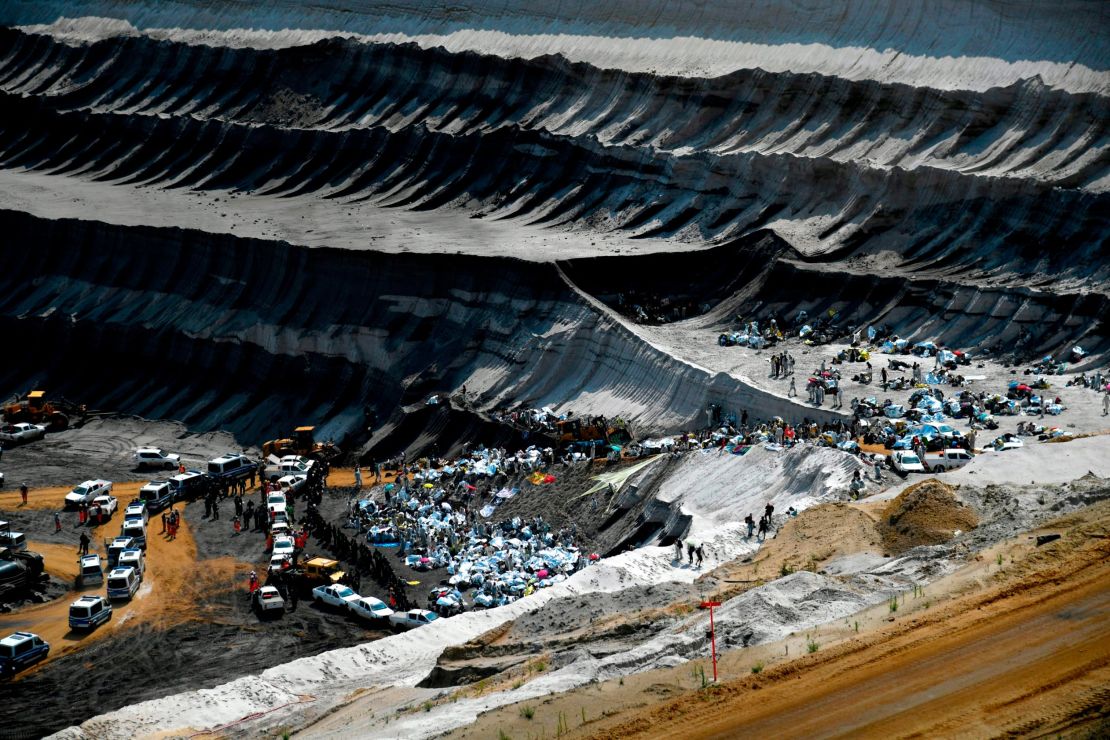Hundreds of climate change protesters broke into a huge open cast mine in western Germany Saturday to protest against the country’s ongoing dependence on fossil fuels.
The activists, many dressed in white overalls, evaded police officers as they crossed fields and roads, before descending into the vast Garzweiler lignite mine, located south-west of Düsseldorf.
The mine, which covers 48 square kilometers, is operated by German electricity giant RWE (Rheinisch-Westf?lisches Elektrizit?tswerk AG) and produces raw materials used in coal-fired power stations.
Organized by the Ende Gel?nde (EG) alliance, a German environmental protest movement, the activists staged a blockade against the police, sitting down in the center of the mine, covered with reflective blankets to protect themselves from the sun.

“We still have hope, the door is still open to a future within the 1.5 degrees C limit,” Sina Reisch, a spokeswoman for the EG alliance, said in a statement. “But we will miss this last chance if we don’t act immediately.
“Today, we set out with thousands of people towards a future without fossil fuels, without exploitation and without this destructive quest for infinite economic growth.”
Nike Malhaus, a fellow EG spokesman, added: “Nothing less than our future is at stake. We will definitely not wait until 2038 to phase out coal, we are acting now.
“If we keep burning coal for another 20 years, it is impossible to stay within the 1.5 degrees C limit. Today we are taking the coal phase out into our own hands because the government is failing to protect the climate.”

The protesters were quickly surrounded by police and many were forcibly removed. Kathrin Henneberger, an EG representative, reported that the final protesters were removed from the mine Sunday morning.
“It will continue all over Europe this summer,” she wrote on Twitter. “Our resistance has only just begun.”
Saturday’s protest came just a day after EG protesters blockaded the railway tracks leading to the Neurath power station, one of Germany’s main coal-fired plants, halting the supply of coal.
“This weekend, we have completely shut down the CO2 source in Europe, the Rhineland lignite mining area,” Henneberger wrote on Twitter.

“No coal train goes to the power plants anymore. No excavator works anymore in the opencast mines. It is amazing. Thanks to all the thousands of brave people.”
The Aachen Police force, which is responsible for the region in which the power plant is located, reported that individuals were detained during the blockade.
They noted that protesters were given multiple opportunities to leave the tracks freely on being asked, but failed to comply with the order.
The force also noted that a number of officers were injured as protesters attempted to break through police chains and avoid security measures.

Saturday’s blockade was not the first time that the EG alliance has staged large-scale protests; in October 2018, approximately 6,000 activists blocked the tracks leading to a coal mine near the Hambach forest for 24 hours.
As many as 8,000 protesters also took to the streets Saturday in the town of Keyenberg, located next to the Garzweiler mine, which is threatened with destruction by plans to expand the mine.
Despite Germany’s decision to abandon nuclear energy following the 2011 Fukushima nuclear power plant disaster in Japan, coal still plays a central role in its energy mix.
The government committed in January 2019 to close all of Germany’s coal-fired power plants by 2038, but coal still accounted for around 40% of the country’s electricity in 2018.
